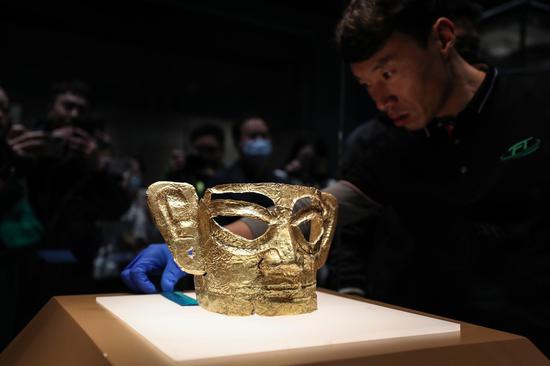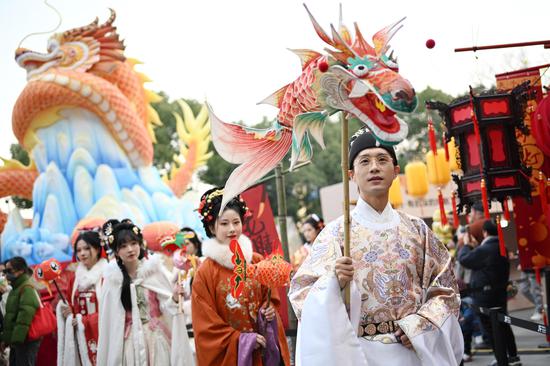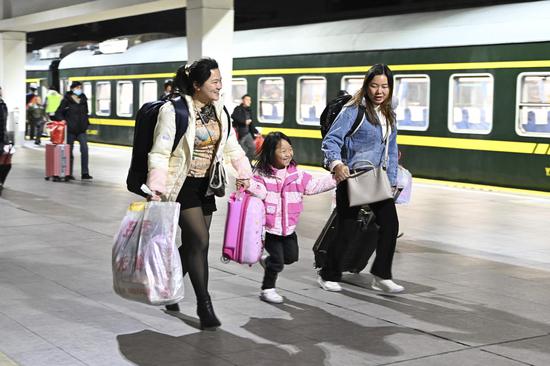
Photo taken on Jan 30 shows the parallel session on "Education Digitalization and Learning Society Construction" at the 2024 World Digital Education Conference being held in Shanghai. (Photo provided to chinadaily.com.cn)
Generative artificial intelligence tools shouldn't be banned in schools but should be applied safely and appropriately to empower the innovative development of education, experts and officials said.
The swift advancement of ChatGPT and other generative AI technologies has offered more opportunities for teachers as well as students, experts said at the 2024 World Digital Education Conference in Shanghai, which concluded on Wednesday. It also poses new challenges regarding information security and education equality, they said.
Zheng Qinghua, president of Tongji University, said China should embrace the opportunities and challenges of AI-empowered education and guide young people to understand knowledge created by technology while stimulating their motivation for learning.
"Generative AI technology has become an essential tool for obtaining and spreading knowledge. It has an impact on teaching, learning and even school management," said Zheng, who is also an academician at the Chinese Academy of Engineering.
He said that various models developed by internet companies and universities have been applied to educational activities, and the majority of college students in China have used the technology, including Ernie Bot, an AI chatbot product developed by Baidu Inc.
These kinds of tools, with ChatGPT as a leading global example, are capable of writing essays and solving science problems, helping students with their assignments and tests.
A survey by the online learning platform Study.com found that 89 percent of students who responded had used ChatGPT to help with a homework assignment, which has raised questions about academic propriety and the disruptive effect of generative AI in education.
"We cannot simply let AI provide answers or do homework and tests for us. Instead, we should, based on the technology, better cultivate students to be more innovative and integrate professional disciplines to solve real problems," Zheng said.
"One of the new goals of AI-empowered education is to innovate theories and methods to tackle engineering and technical issues instead of simply answering general questions," he added.
Colin Bailey, president of Queen Mary University of London and a fellow of the Royal Academy of Engineering, said that with the rapid growth of ChatGPT, the question is not whether to use generative AI in education, but how to use it safely, effectively and appropriately.
"The worst thing we can do is to ban generative AI in schools. The major challenge is how to make sure we use these technologies appropriately to enhance the education so that students have the skills they require for the ever-changing job market," he said.
Universities and teachers can help prepare students for real-world applications of the technology they will encounter in the modern workplace, as many industries are embracing generative AI as a tool to increase efficiency, he added.
For teachers, the technology has been used to improve the marking and evaluation of students through personalized data analysis rather than exam papers.
Harm warned
However, poor design and misuse of AI systems could cause individual and social harm due to biased data and insufficient privacy, Bailey said.
Approaches to regulating AI have been emerging globally to support the ethical and responsible use of generative AI, such as the release by the United States of the Blueprint for an AI Bill of Rights and a pro-innovation approach to AI regulation in the United Kingdom.
In China, the Cyberspace Administration and other departments have jointly issued interim measures, which took effect in August, for managing generative AI services.
Chen Jie, vice-minister of education, said at the conference that education and research institutions should cooperate to avoid problems brought by AI, including privacy leaks, bias and algorithm abuse.
"We should work together to promote the equal access of technologies and prevent security risks," Chen said.
China has established an expert advisory body for education digitalization and an ethics committee for AI, which have formulated a standardized system for the application of digital education, he added.

















































 京公網安備 11010202009201號
京公網安備 11010202009201號